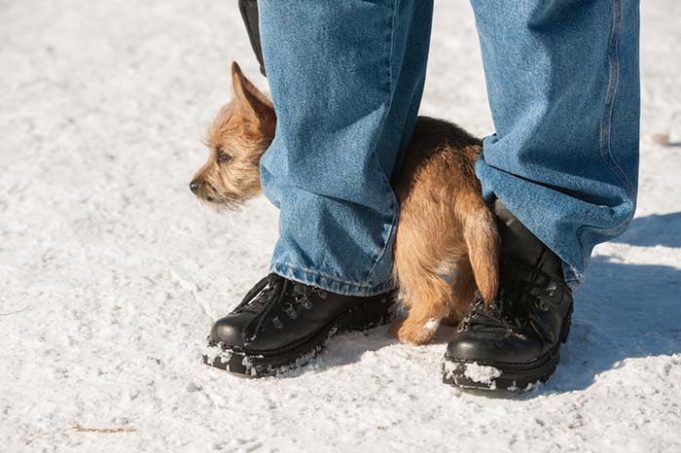A new study has shown that dogs react to strangers and owners differently depending on the situation they've been put in. A difference has also been identified when it comes to dogs that have been raised in families and rescue dogs.
Every dog owner knows that dogs' personalities are just as different as humans, and it's very hard to make grand sweeping statements about whether dogs are more attached to their owners than to strangers.
“In new places or during moments of discomfort, dogs can be inclined to seek out their owners. When comfortable, dogs are more likely to interact with unfamiliar people.”
Generally, dogs will always feel more comfortable exploring new surroundings with you by their side; however, you might be surprised to hear that that's not always the same in familiar places. Results of this new study show that in certain situations dogs are quick to form attachments for one person without hesitation, whether it's their owner or not.
It's All About the Location
The new research by animal behavioral scientists in Florida tested the interactions between dogs and people they know and people they don't. They gave dogs the choice to go to their owner or a stranger – in two different situations.
In the first scenario, when in an unfamiliar place, the dogs spent over 80 percent of their time with their owner. However, when the pooches were placed somewhere familiar, over 70 percent of their time went to the stranger instead.
 Should you feel hurt that your pup might sometimes prefer someone else to you? Absolutely not!
Should you feel hurt that your pup might sometimes prefer someone else to you? Absolutely not!
While the study is fairly comprehensive, there's really no way to test whether the dog is aware of the fact their owner is in the room. So, the presence of the owner and the security of a familiar place actually makes it more likely for the pooch to engage with strangers.
The study is unique as it joins a body of existing research with brand new behavioral trials and it's a revolutionary step towards a better understanding of canine behavior.
Shelter Dogs Vs. Owned Dogs
Perhaps the results of the study do have something to do with whether a dog is a rescue or not? The research touches on that too, and it points out that shelter dogs start recognizing their owner after three 10-minute interactions.
This will be good news for all supporters of the adopt-don't-shop philosophy of pet ownership. Shelter dogs are sometimes seen as ‘broken' because of the trauma of losing their home and family. But that doesn't mean they harbor bad emotions. Just like any other living being, they want to feel love and belonging.
Safety at The Heart of Canine Affection
“In the stressful, unfamiliar context, we see that you are still important—you're your dog's number one.”
Ultimately, the study concludes, it speaks for dogs' inherent need to feel safe. They recognize the contexts in which they can feel protected very well, and they're very aware of their surroundings. Being around humans, who are supportive and helpful, never goes unnoticed – and pooches have a way of “smelling” the way you feel after all.
Also, you should remember that in stressful situations for your dog, you'll always come first. Erica Feuerbacher, one of the researchers in the study, pointed out in an interview that whenever the dog is placed in a situation perceived as dangerous, they will always turn to their owner first.
So, this only goes to show that if you are confident enough and show your pooch that they can trust you, then there's nothing to worry about when it comes to affection. It also proves that no matter what their personality is, all dogs deserve love – and as long as you know that they're hopelessly devoted to you, that's all that matters, in the end.
READ NEXT: 9 Tips for Introducing a New Dog When You Already Have Pets













